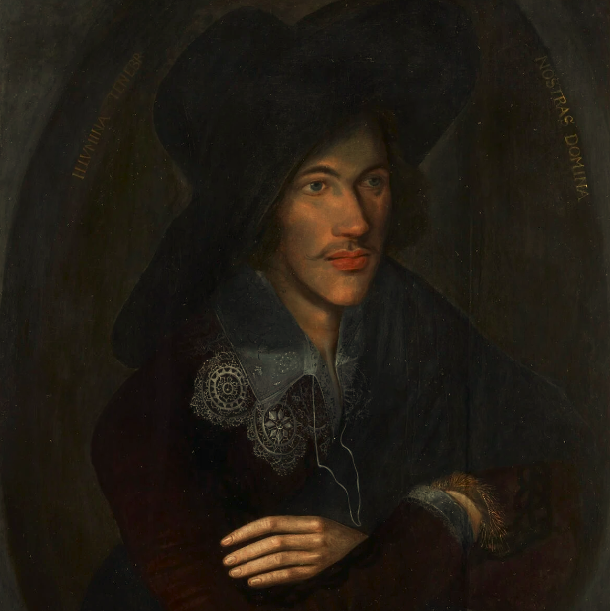Metaphysical Poetry
Lecturer: Emmalea Russo

“He affects the metaphysics, not only in his satires, but in his amorous verses, where nature only should reign; and perplexes the minds of the fair sex with nice speculations of philosophy, when he should engage their hearts, and entertain them with the softnesses of love..” That’s John Dryden, writing about the poetry of John Donne in 1693. How might poetry “affect the metaphysics?” How does poetry deal with the relationship between the soul and the body, mind and matter? The so-called natural and unnatural? Known for their wit, playful use of irony, complex conceits, wordplay, philosophizing, and operatic imagery, the so-called Metaphysical Poets were writing in England during the 17th century. Though the term “metaphysical poetry” was coined in retrospect (as an insult) by the critic Samuel Johnson referring to the above passage by Dryden, metaphysical poetry is not necessarily confined to a specific place or time. In this course, we’ll read poems by the influential 17th century metaphysical poets John Donne, Andrew Marvell, George Herbert, and Henry Vaughan alongside writings offering historical and cultural context for their work and ways. We’ll also discuss how the metaphysical resounds in modern and contemporary poetry.
Week 1: “This Flea is you and I”: What is the Metaphysical?
In this first class, we’ll think about the term metaphysical, discussing some philosophical and artistic influences and historical context of the 17th century Metaphysical poets. We’ll read and discuss two of John Donne’s poems that are commonly referenced as trademark metaphysical poems: “The Flea” and “The Sun Rising.”
Readings
- “The Flea” by John Donne
- “The Sun Rising” by John Donne
- Stephanie Burt on John Donne’s The Sun Rising
- Helen Gardner’s introduction to The Metaphysical Poets
- W. Bradford Smith: “What is Metaphysical Poetry?”
Week 2: “Twice or thrice had I lov’d thee:” John Donne
Lecture on the life and work of John Donne. (1572-1631). We’ll read and discuss a selection of John Donne’s love poetry, holy sonnets, and prose.
Readings
- Introduction to John Donne: The Major Works
- Excerpts on John Donne and Metaphysical Poetry from Seventeenth Century English Poetry
- “A Valediction: Forbidding Mourning” by John Donne
- “The Ecstasy” by John Donne
- “Love’s Diet” by John Donne
- “Holy Sonnets” by John Donne
- Selections from Donne’s sermons and prose
Week 3: “Deserts of vast eternity”: Andrew Marvell
Lecture on the life and work of Andrew Marvell (1621-1678).
Readings
- “A Dialogue between The Resolved Soul, and Created Pleasure”
- “A Dialogue between the Soul and Body”
- “To His Coy Mistress”
- “The Definition of Love”
- “Andrew Marvell” by T.S. Eliot
Week 4: “Each part of my hard heart”: George Herbert and Henry Vaughan
Lecture on the life and work of George Herbert (1593-1633) and Henry Vaughan (1621-1695).
Readings
- “The Altar” by George Herbert
- “The Agonie” by George Herbert
- “Redemption”
- “Death”
- “Love”
- “Retreat” by Henry Vaughan
- “The Star” by Henry Vaughan
- “Regeneration” by Henry Vaughan
- “Reading Forms: George Herbert” in Southwest Review
- Selections from Helen Vendler’s The Poetry of George Herbert
Week 5: Angels, Bodies, Souls, and Technology: The Metaphysical in Modern and Contemporary Poetry
How do we conceive of the metaphysical today? We’ll think about ways in which some Metaphysical techniques and subjects might resound in modern and contemporary poetry.
Readings
- Poems by T.S. Eliot, H.D. Olena Kalytiak Davis, Carolyn Forche, Cynthia Cruz, and Louise Gluck.
- T.S. Eliot: “Varieties of Metaphysical Poetry”
- William Van O’Connor “The Influence of the Metaphysicals on Modern Poetry”
- Roger Gilbert: “Awash with Angels: The Religious Turn in Nineties Poetry”
